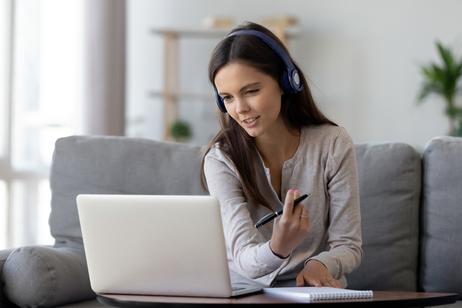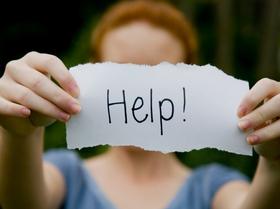Solid parent-teacher relationships have always been an important part of K-12 education. During this interminable pandemic, parent-teacher relationships have become even more important. That's because most of us parents and teachers are not quite sure what's coming next. Will local infections have risen to the point that the local and state authorities have ordered a lockdown? Has the coronavirus infected a member or members of our school's community? The number of variables we face daily can be confusing and discouraging for us parents. But, know what? It's even worse for our children. You and I have experience on our side. We've been through tough times. We've had our comfortable routines thrown into disarray by changes in employment and relationships. Realistically, however, our children have not experienced any of those issues. So, when suddenly they are forced to stay at home and take classes online, it's unfamiliar, uncharted territory for them, as it is for their parents. As a result, a strong parent-teacher relationship is an essential element in your child's intellectual and mental well-being during the pandemic.
The acronym TRUE will help you and me understand what's involved in creating the environment for a strong, supportive parent-teacher relationship.
T - Transition from in-person to digital learning
R - Relate to your teacher's situation
U - Understand your child's point of view
E - Expect a good result
In this video, Megan Olivia Hall, 2013 Minnesota teacher of the year, explains how a parent-teacher relationship works.
The transition from in-person to digital learning
Fortunately for you, your school probably has had strong technology resources in place for many years. Over the last twenty years that I have been observing and writing about K-12 private school education, I have been consistently impressed by the time and resources which private schools have invested in technology. Most schools see technology as a valuable tool to enrich and enhance their academic offerings. They have taught their teachers and students how to use technology wisely and efficiently. As a result, transitioning from in-person learning to online learning for short or long periods won't be too much of an issue from the school's perspective. However, you will have to provide a quiet place for your child to work together with a strong WiFi connection so that she can use her dedicated tablet, laptop, or desktop computer with minimal connection issues. You will notice that I specified that your child must have a dedicated device.
Relate to your teacher's situation
The dynamics of online teaching are different from in-person classroom teaching. That's mainly because the teacher cannot look into her students' eyes the way she can when she is in the classroom. We, teachers, are constantly looking for that "Eureka!" moment which we can see in a student's eyes when she understands what you are teaching. Making sure that your child understands what's being taught becomes part of your responsibility. Your teacher will coach you as to what to look for and how to assess the situation.
In this video from Education Elements, Gabrielle Hewitt and Megan Campion suggest strategies for communicating with parents during this time of remote learning.
Understand your child's point of view
As I pointed out at the beginning of this article, the major changes in your child's life are unsettling at a minimum and depressing in extreme situations. The online learning experience may impart the academic information she needs. But what's missing is socialization. Yes, she can chat and text with her schoolmates online. But it's not the same as hanging out with them in the drama club or at the stables.
Let's look at some of the things the experts say about the pandemic's effect on children and what you can do about it. Brittany Moser offers practical advice in her article in Educating All Learners, Transforming the Parent-Teacher Relationship in Remote Learning.
In a report from NBC News, Erin Einhorn tells us that vaccines can protect us from COVID-19, but they cannot make up for the damage caused by being out of school, not playing sports, and not enjoying extracurricular activities. Add to that reality her not being able to socialize, and you can see how the pandemic has turned your child's world upside down, inside out.
The Centers For Disease Control weighs in on the effect the pandemic has on children:
"Coronavirus disease (COVID-19) can affect children and young people directly and indirectly. Beyond getting sick, many young people's social, emotional, and mental well-being has been impacted by the pandemic. Trauma faced at this developmental stage can continue to affect them across their lifespan."
Expect a good result.
It may sound trite, even a bit pollyannish, but it is critically important for you to take the lead in this partnership of three. You are paying the school to do a first-rate job of teaching your child. You are providing your child with all the support she needs to be a good student during these difficult times. You have to take the leadership role and expect a good result. You know your child better than anyone. Expecting a good result means that you have to do your own due diligence. Research ways to support your child's mental and spiritual well-being. Be creative. Be funny. While I'm not advising you to minimize the terrible effects of the pandemic, I am recommending that you teach your child new ways of coping with the situation. You have deep wells of creativity and imagination. Now's the time to put those inner resources to work. Your child's future will depend on it.
This video offers some tips for preparing for virtual parent-teacher conferences.
Before the pandemic struck, your interaction with the school was fairly predictable. You could stop by the office, meet other parents while watching a game, have your daughter's friends over, see her teachers at school and on social occasions, and so on. Those opportunities for live in-person interaction are limited until the pandemic was passed. That's why you need to find new ways to communicate with your daughter's teachers and the school. Be patient. Be flexible. Be helpful. When you have concerns and criticisms, express those directly to the school and your child's teacher. Don't grouse with other parents. Be an exemplar with your leadership and good parenting in these difficult times.
Questions? Contact us on Facebook. @privateschoolreview





















